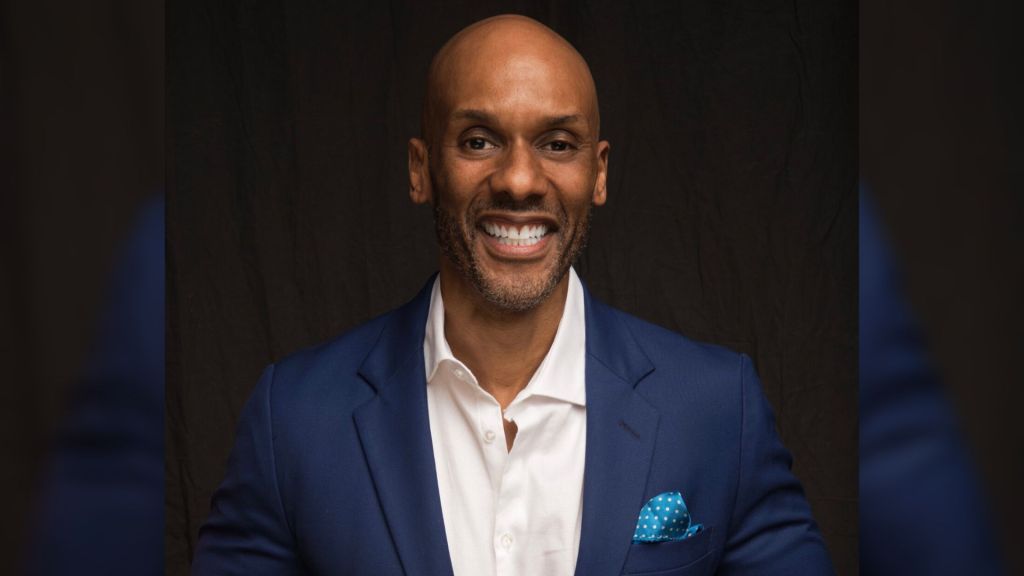By Keith Boykin
Word in Black
“Black Vote, Black Power,” a collaboration between Keith Boykin and Word In Black, examines the issues, the candidates, and what’s at stake for Black America in the 2024 presidential election.

This month, Kamala Harris unveiled a new agenda for Black men. The plan is extensive, but I want to highlight 10 specific steps she would take as president that would empower Black men with the tools we need to build wealth, provide for our families, and lead our communities.
Number 1- Business loans
Black Americans are twice as likely to be denied credit by banks, so Harris would provide 1 million fully forgivable loans of up to $20,000 to Black entrepreneurs and others who have historically faced barriers to starting a new business or growing an existing one.
Number 2- More jobs without college degrees
Harris would eliminate unnecessary degree requirements and promote pathways for those without college degrees for 500,000 federal jobs.
Number 3- more Black male teachers
As a former high school English and social studies teacher, I know it’s important for young Black males to see Black men in front of the classroom as role models and mentors. Only 1 percent of public school teachers are Black men, so Harris would create pathways for more Black men to become teachers, including apprenticeship programs and loan forgiveness.
Number 4- Health care
My uncle, who had sickle cell disease, died last year, and I know several Black men my age who have been recently diagnosed with prostate cancer. And don’t get me started on the mental health needs of the Black men in my family and community. I see it every day. We’ve been traumatized by an unfair criminal justice system and a world that demonizes us instead of understanding us. Fortunately, Harris would launch a National Health Equity Initiative focused on Black men that addresses sickle cell disease, diabetes, mental health, and prostate cancer.
Number 5- Weed equity
Black men have been disproportionately arrested and incarcerated for marijuana-related charges. Now that cannabis is becoming more socially acceptable and profitable, it’s only fair that we benefit from the changing system that hurt us. Vice President Harris not only wants to legalize recreational marijuana but also create opportunities for Black Americans to succeed in this new industry.
Number 6- Ban the box
I have a law degree, and yet when I lived in Harlem, I was still stopped on the street, arrested, and locked up in jail. I know Black men have been targeted by a racist criminal justice system. Harris would work with Congress to require businesses to limit the unnecessary use of criminal arrest histories, convictions, and credit scores in employment decisions.
Number 7- Mentorship Programs
Harris would expand funding for community mentorship programs with a proven track record of helping young Black men succeed. She will also support programs like My Brother’s Keeper.
Number 8- Support Black farmers
Harris would continue to support Black farmers and ranchers who have been denied access to capital. As vice president, she already distributed funding to thousands of Black farmers and ranchers in a $2 billion relief package.
Number 9. Relieve Medical Debt. My stepfather passed away in April 2020 , with a mountain of medical debt. Vice President Harris plans to work with states to relieve medical debt, which is the leading cause of bankruptcy in America, and disproportionately hurts Black Americans.
And Number 10. Crypto Protection. More than 20 percent of Black Americans, including me, have owned cryptocurrency assets. I lost money in crypto, but the high-risk, high-reward crypto markets provide opportunities outside of the existing stock market for many Black men. A Harris administration would support a regulatory framework for cryptocurrency and other digital assets to protect Black men who invest in these assets.
Now, let me answer a few questions I’ve already seen from critics:
Question 1: Why didn’t she do this in the last four years?
Because she’s not the president. She’s the vice president. Trump was actually a president, and he did none of these things in his four years in office.
Question 2: But why do some of these policies say Black men “and others?” Why aren’t they all Black-specific?
Well, because Trump’s Supreme Court Justices and federal judges keep striking down programs that focus on Black people? Trump’s Supreme Court ended race-specific affirmative action in college admissions. A Trump-appointed federal judge forced the Minority Business Development Agency to help white people. Another Trump-appointed federal judge blocked a disaster relief program for Black farmers. And two Trump-appointed federal judges in Georgia blocked a private program by the Fearless Fund to help Black women in business.
If Trump’s judges won’t allow a private group of Black women to help each other, do you think they’re going to let a government program that only helps Black men and excludes others? No. But this is what happens when we don’t vote. So we have to create clever ways to get around the Trump MAGA Republican bans on helping Black people.
Question 3: Yeah, but why does it feel like Democrats only care about Black women?
Yes, Joe Biden elevated two very prominent Black women in the past four years:VP Kamala Harris and Supreme Court Justice Ketanji Brown Jackson. But the Democratic Party is filled with Black men in positions of power and leadership. The highest-ranking Democrat in the U.S. House of Representatives is Minority Leader Hakeem Jeffries, who will become the first Black Speaker if Democrats win the House in November. The highest ranking leader in the military is Lloyd Austin, the first Black Secretary of Defense. Two of the three Democratic Black U.S. senators — Raphael Warnock and Cory Booker — are Black men. The Democratic governor of Maryland, Wes Moore, is a Black man. The mayors of New York City, Chicago, and Atlanta are all Black men in the Democratic Party. And the only Black person ever elected president, Barack Obama, is also a Black man.
And Question 4: But isn’t Trump better for Black men?
Was he better for Antron McCray, Kevin Richardson, Yusef Salaam, Raymond Santana, and Korey Wise — the Exonerated Five teenagers who went to prison when Trump led a lynch mob against them for a rape they did not commit, and then refused to apologize after they were exonerated by DNA evidence? Was he better for the Black casino workers who sued him for racial discrimination? Was he better for Colin Kapernick and the NFL players he attacked for taking a knee? Was he better for Eugene Goodman, the Capitol Police Officer who had to fend off a mob of angry white Trump supporters who tried to take over the Capitol on January 6? Was he better for the Haitian American Black men in Springfield, Ohio, who were subjected to death threats because of Trump’s lies about them eating dogs and cats? Was he better for Marcellus Williams, the Black man who was executed by the State of Missouri last month because Donald Trump’s three Supreme Court Justices refused to agree with the Democratic Justices to stop the execution? Was he better for the Black farmers denied relief by his judges? Was he better for the Black men who died while he mismanaged the COVID pandemic? And will he be better for the Black youth who will be harassed by the police when he brings back stop and frisk?
Kamala Harris wants to help Black men build wealth, provide for our families, and lead our communities. Trump wants to use us as political pawns in his angry MAGA campaign. Those are the choices. Choose wisely.
The post Kamala Harris has a plan for Black men–Trump never did appeared first on AFRO American Newspapers.










